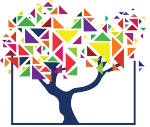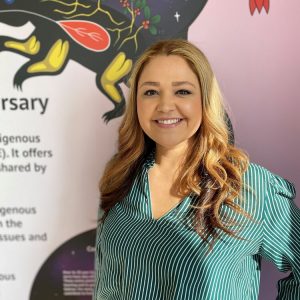Reconciliation & Reflection: Orange Shirt Day and the National Day for Truth and Reconciliation
Please note that this post speaks about residential schools and the meaning behind Orange Shirt Day and the National Day for Truth and Reconciliation. We acknowledge that the land in which we work from at the The University of Toronto has been, for thousands of years, the traditional land of the Huron-Wendat, the Seneca, and the Mississaugas of the Credit. Today, this meeting place is still the home to many Indigenous people from across Turtle Island and we are grateful to have the opportunity to work on this land. Learn more about which lands you may reside on, and the treaties and histories connected with it, at: https://native-land.ca/ or https://www.whose.land/en/
On September 30th we commemorate Orange Shirt Day, a day intended to raise awareness on the centuries long impact Canada’s Residential School System has had on Indigenous communities, knowledge, traditions, and beyond. Orange Shirt day comes from the experience of Phyllis Webstad (Stswecem’c Xgat’tem First Nation), who was six-years-old when she first arrived to a residential school. On her first day of arriving at the school she was stripped of her new orange shirt. This is what she has shared on what it felt like – and you can learn more about Phyllis’s story in the link provided:
Redefining Traditional: The Importance of Meaningful Land Acknowledgments (Part Three)

This is a re-post from Redefining Traditional, a community aiming to equip student parents with the tools to navigate their various roles, build a community of support and belonging, as well as providing a space for productive dialogue amongst policy-makers to help reimagine higher education. If you’re interested in contributing to our online community, we encourage you to share your story as a student parent by filling out this form.
Our land acknowledgements series highlights important stories and teachings from each of the Redefining Traditional team members – Heather, Shamim and Kaitlyn. Through these posts, we aim for our community to think about how land acknowledgments are immensely important, and to ensure we engage in teachings about specific cultures beyond a day or month of recognition. We also highlight important questions to support our community so that an acknowledgement moves beyond a ‘script’ and towards an ongoing conversation.

Our final post in this series is by Shamim Ahmed! Our previous two posts are from:
- Heather Watts – who speaks to actionable steps and exercises you can do to move towards meaningful land acknowledgments
- Kaitlyn Corlett – who speaks to her locality as a settler, and ongoing journey with land acknowledgements
Reflections on Orange Shirt Day
This is a re-post from Redefining Traditional in acknowledgement of Orange Shirt Day, a day to honour the lives of children impacted by the residential school system and its continued effect in Indigenous communities across the country. Our Design Researcher at the Innovation Hub, Heather Watts, has shared a thoughtful piece on the significance of this day – one that every individual should deeply reflect on. We also recognize that our learning about and with Indigenous folx and histories does not and should not be located only on specific days, and should be ongoing.

Last year around this time, I wrote the following post on my Facebook page:
A lot of feelings as I dropped Nico off this morning, sporting his orange shirt. Today is Orange Shirt Day, a day designed to educate people and promote awareness about the Indian residential school system and the impact this system had on Indigenous communities for more than a century in Canada, and still does today.
This system was assimilation and erasure packaged and tied as ‘education’. What do we mean when we use this word? What are we teaching? What are we intentionally leaving out? What narrative are we working to maintain?
Centering Hope, Action and Change for National Indigenous History Month at the Innovation Hub
Written by Terri-Lynn Langdon, Editor and Writer
![]() June is National Indigenous History Month and The Innovation Hub wishes to celebrate this month and Day (June 21st) by celebrating the lives of Indigenous communities and acknowledging the richness and diversity of Indigenous knowledge, histories, and world views.1
June is National Indigenous History Month and The Innovation Hub wishes to celebrate this month and Day (June 21st) by celebrating the lives of Indigenous communities and acknowledging the richness and diversity of Indigenous knowledge, histories, and world views.1
In recent years, our work with Indigenous Student Services (also known as First Nations House) has focused on engaging with spaces, services, and needs for Indigenous students on campus. Through these projects, we collaborated these spaces from 2018-2019 to foster spheres of community on campus. The Innovation Hub then explored the core needs of services that are needed on campus for Indigenous students to feel supported and engaged throughout their respective studies. It’s through these integral community partnerships and our design thinking processes and resources that we continually work to address realities that Indigenous lives, spaces, and communities face in a Canadian context (and beyond).
Spotlight: What Do We Mean When We Talk About Community?
Social and Cultural Community at First Nations House

Written by Charis Lam – Design Research Events Lead
In search of factors driving student engagement, First Nations House partnered with the Innovation Hub in summer 2018 to ask: what causes students and staff to engage and connect with First Nations House? Among the factors identified—including assistance with scholarships and housing, personal relationships to staff members. and access to the resource centre—cultural and social programming emerged as a need strongly felt by students. Thus, First Nations House and the Innovation Hub renewed their partnership to investigate what sorts of social and cultural programming students want.

